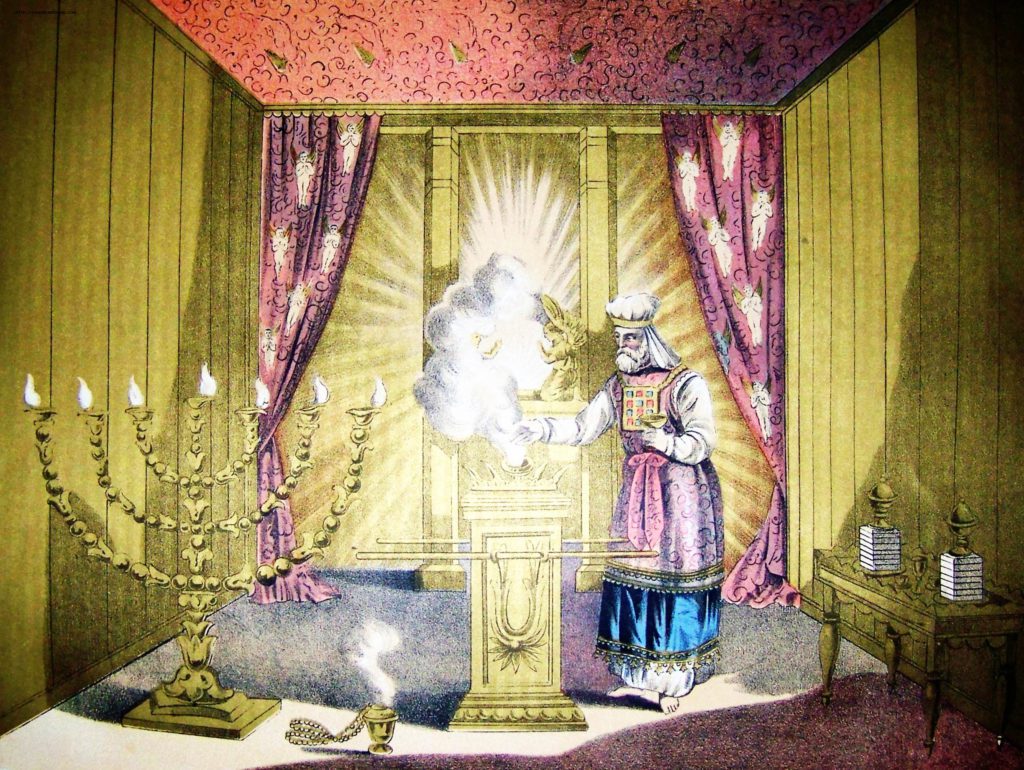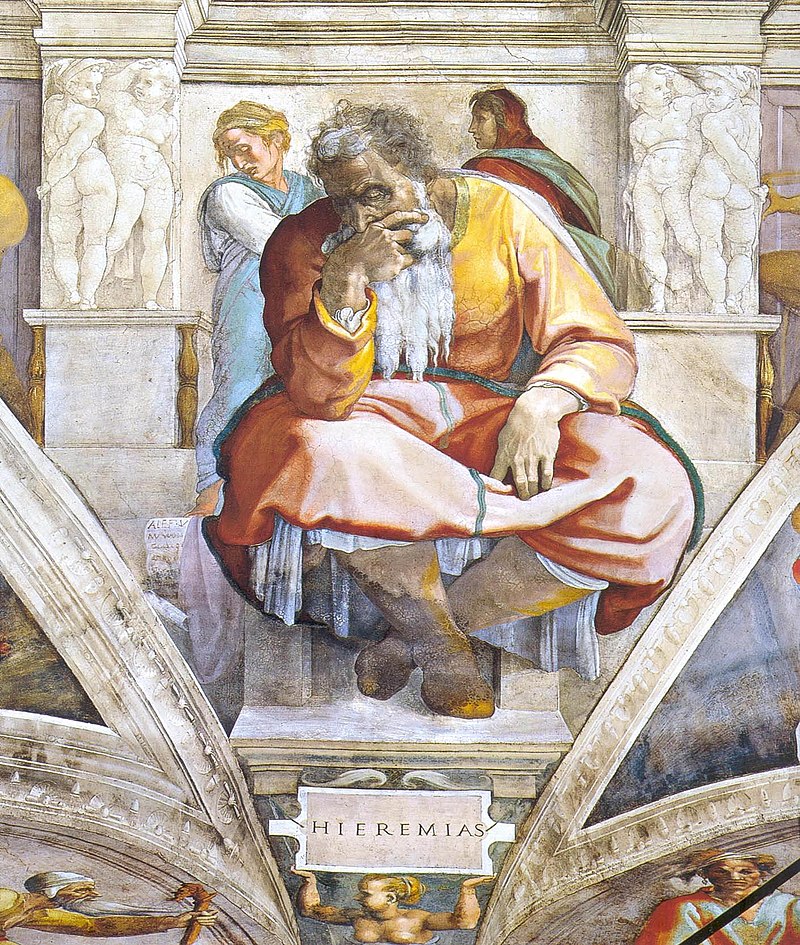The Main Point
Now the main point of what is being said is this:We have this kind of high priest, who sat down at the right hand of the throne of the Majesty in the heavens, a minister of the sanctuary and the true tabernacle that was set up by the Lord and not man.
Hebrews 8:1-2 CSB
Let’s not miss this, the author of Hebrews emphasizes the ‘main point’ of the letter (not just this chapter, a reference added to the Letters later). Let’s look more closely.
- ἀρχιερεύς – archiereus, High Priest in english points to the ‘chief priests’ of Judaism and also to Christ.
Specifically, by the text which follows, the author affirms a text familiar to some from Luke 22:69 and other references. “[He] is seated at the right hand of God].”
Ministers
Now the writer of Hebrews points beyond the authority, nearer to our experience. God assigns a High Priest to minister to His people. Consequently, the High Priest is: “A minister of the sanctuary.”
“Minister” is a favorite description of the leader of some denominations of Christianity, and for good reason. Because a minister is a servant, perhaps even a public servant of his community. He may even be a tax collector, assigned as a minister of the state or your servant of government delivering some military labor.
Yet τῶν ἁγίων λειτουργὸς καὶ τῆς σκηνῆς, “a minister of the sanctuary and true tabernacle” serves the Lord God. A High Priest ministers to God’s people from the sanctuary.
Reverends
Of course we commonly hear of the esteemed leaders of some churches referred to as Reverend Soandso or the Reverend Doctor Soandso. But ‘reverend relates more to their position in the sanctuary, ἅγιον hagion, defined as: reverend, worthy of veneration; of persons whose services God employs; set apart to God; in a moral sense, pure sinless upright holy.
Once again, from the text of Hebrews (in Greek) the imagery of holiness points back to the position of the High Priest in the Holy of Holies. And that is where the author points next.
and of the true Tabernacle
καὶ τῆς σκηνῆς τῆς ἀληθινῆς
Hebrews 8:2b gk.

Perhaps we understand the Holy of Holies more in the context of the Temple, yet it’s description as an exact place for God to come down to the High Priest is a temporary meeting place within a tent.
Hebrew מִשְׁכָּן (mishkan), Tabernacle in English.
Therefore, the Tabernacle, σκηνή skēnē is a tent, a shadow of the place of holiness like prescribed to Moses. This was why Peter wanted to build three tabernacles when he witnessed Moses and Elijah with Jesus.
Exodus 25:
8 “They are to make a sanctuary for me so that I may dwell among them. 9 You must make it according to all that I show you—the pattern of the tabernacle as well as the pattern of all its furnishings.
The key point of the author of Hebrews is this ‘pattern of the tabernacle.’ Consequently Jesus the Messiah becomes a minister of the sanctuary and ‘true tabernacle.’ His appointment as a minister of Authority at the right hand of God makes Jesus a better High Priest.
The tabernacles of the earth (including the Temples of Jerusalem) are temporary.
These serve as a copy and shadow of the heavenly things, as Moses was warned when he was about to complete the tabernacle.
Hebrews 8:5
Covenant
What is a covenant? (Twenty-first century Christians and Jews can hardly imagine its impact, because we do not even keep our less solemn promises.)
‘I’ve heard of it. I think God may be involved in a covenant.’
“I will establish My covenant with you,” said God [אֱלֹהִים] to Noah.
And “the LORD [יְהֹוָה] made a covenant with Abram.”
But covenants may also be made between men. A covenant [בְּרִית bĕriyth] [διαθήκη diathēkē] is and alliance and pledge, a solemn promise to the agreed relationship.
The Person of God our Father in heaven has made a covenant with you. Who do you think would break it? Certainly not the LORD!
And Jew and follower of the Way knew scripture well enough to recall their heritage of breaking covenants with the Lord God. For a long history of kings ‘did what was evil in the sight of the Lord.’
The Prophet Jeremiah

Jeremiah lived about 600 years before the writer of Hebrews. His witness of the fall of Jerusalem follows calls for repentance which went unheeded.
“Hear the words of this covenant, and speak to the men of Judah and to the inhabitants of Jerusalem; and say to them, ‘Thus says the LORD, the God of Israel, “Cursed is the man who does not heed the words of this covenant which I commanded your forefathers in the day that I brought them out of the land of Egypt, from the iron furnace, saying, ‘Listen to My voice, and do according to all which I command you; so you shall be My people, and I will be your God,’ in order to confirm the oath which I swore to your forefathers, to give them a land flowing with milk and honey, as it is this day.”’” Then I said, “Amen, O LORD.”
11:6 וַיֹּ֤אמֶר יְהוָה֙ אֵלַ֔י קְרָ֨א אֶת־כָּל־הַדְּבָרִ֤ים הָאֵ֨לֶּה֙ בְּעָרֵ֣י יְהוּדָ֔ה וּבְחֻצֹ֥ות יְרוּשָׁלִַ֖ם לֵאמֹ֑ר שִׁמְע֗וּ אֶת־דִּבְרֵי֙ הַבְּרִ֣ית הַזֹּ֔את וַעֲשִׂיתֶ֖ם אֹותָֽם׃
And the LORD said to me, “Proclaim all these words in the cities of Judah and in the streets of Jerusalem, saying,‘Hear the words of this covenant and do them.
Jeremiah 11:6
The author of Hebrews now quotes scripture they know.
Jeremiah 31:31-34 excerpts
I will make a new covenant with the house of Israel and with the house of Judah.
Jeremiah 31:31; Hebrews 8:8
“… My covenant which they broke… – Jeremiah 31:32
I showed no concern for them, says the Lord,
Hebrews 8:9B
because they did not continue in my covenant.
32 This one will not be like the covenant I made with their ancestors… —the Lord’s declaration. “I will put my teaching within them and write it on their hearts…
“For I will forgive their iniquity and never again remember their sin.
Jeremiah 31:34D; Hebrews 8:12
A Superior Covenant
His point: we broke the old covenant and the intercession of human priests is insufficient.
The author of Hebrews shows how the Temple and tabernacle were mere shadows of the relationship to the Lord yet to be fulfilled in a superior covenant. He then continues after quoting Jeremiah’s prophesy with hope for a more perfect outcome of its fulfillment.
13 By saying a new covenant, he has declared that the first is obsolete. And what is obsolete and growing old is about to pass away.
The author of Hebrews will proceed by contrasting Jesus with the old covenant.
To be continued...